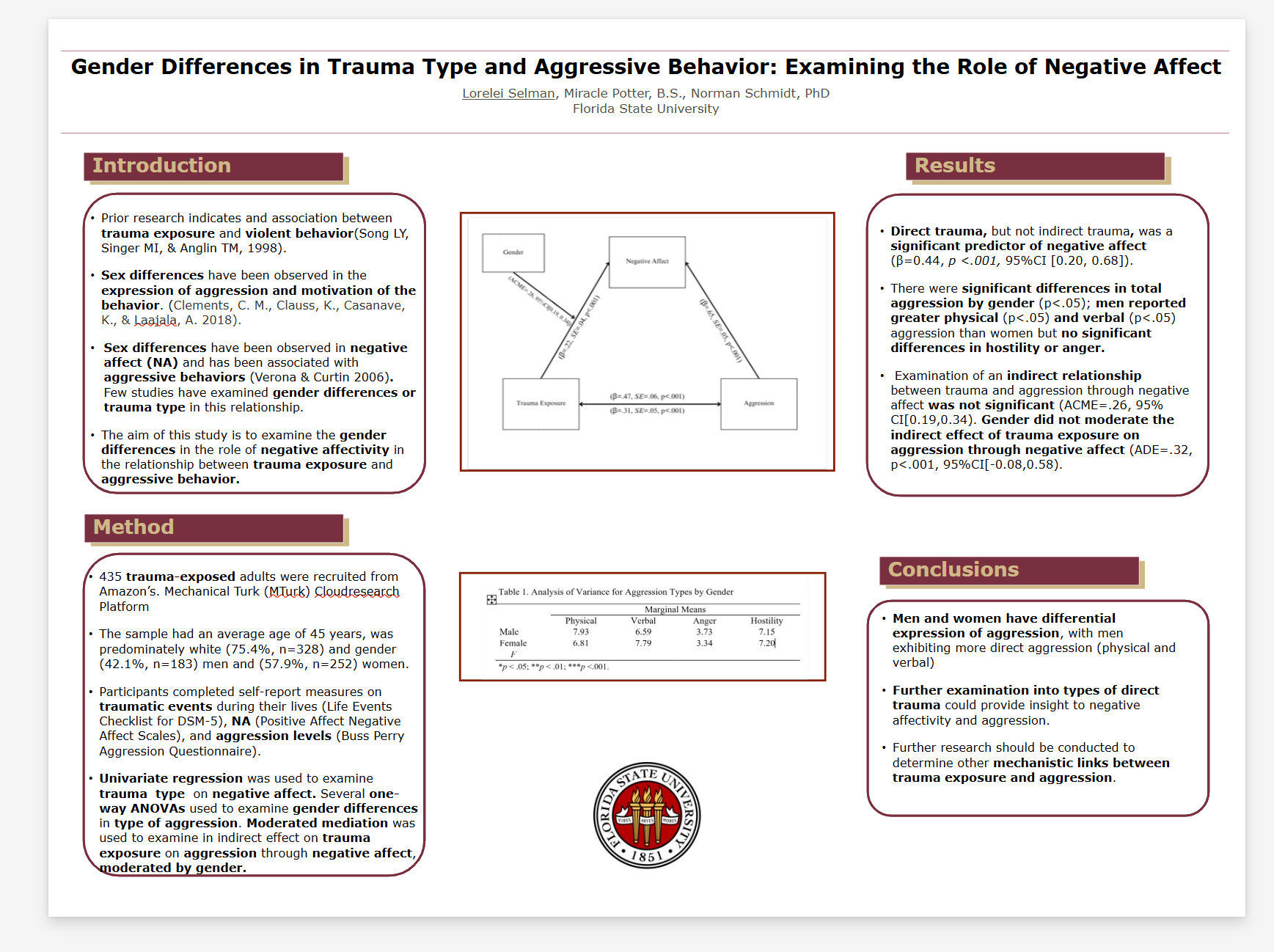Research Symposium
25th annual Undergraduate Research Symposium, April 1, 2025
Lorelei Selman Poster Session 3: 1:45 pm - 2:45 pm / Poster #251

BIO
Hi! My name is Lorelei Selman. I was born in Miami, FL but moved to Tallahassee when I was 7 years old. I am a first generation American citizen, my family coming from the Dominican Republic. I am most interested in research regarding the origins of criminal behavior, especially for children. Finding the best treatment plans for teens and young adults to keep them from reentering the legal system is something I am very passionate about, and would love to pursue. I am planning on entering the MSW program here at FSU and going into clinical social work.
Gender Differences in Trauma Type and Aggressive Behavior: Examining the Role of Negative Affect
Authors: Lorelei Selman, Miracle PotterStudent Major: Psychology, Criminology and Criminal Justice
Mentor: Miracle Potter
Mentor's Department: Psychology Mentor's College: Arts and Sciences Co-Presenters:
Abstract
Trauma exposure has been associated with aggressive behavior, yet the mechanisms linking trauma to aggression remain unclear. Prior research has implicated negative affect as a factor that may explain the connection between trauma exposure and aggression; however, there is limited research considering the role of gender in this relationship. Moreover, the type of trauma exposure has been implicated in aggression research, but few studies have examined negative affectivity and gender concurrently in this relationship. As such, this study explores the impact of trauma type on negative affect, gender differences in aggressive behavior, the role of negative affect in mediating the relationship between trauma exposure and aggression and how gender may moderate this relationship. 435 trauma-exposed adults were recruited using Amazon Mechanical Turk Cloud Research platform and completed self-report questionnaires assessing trauma history, negative affectivity, and aggression levels. Results indicated that direct trauma exposure, rather than indirect exposure, significantly predicted negative affectivity (b=.32, CI [-0.08, 0.58], p=<.001). Gender differences in overall aggression were observed, with males reporting slightly higher aggression than women ( p<.001). Additionally, when examining the components of aggression, men also reported significantly more physical (p<.001) and verbal aggression (p<.001), however no differences were observed for hostility and anger(p>.001). Furthermore, negative affect did not mediate the relationship between trauma and aggression, and gender did not moderate the proposed mediated relationship. These findings suggest that other factors may be involved in the trauma-aggression link, highlighting the need for further research to explore additional moderators and mediators.
Keywords: aggression, negative affect, trauma, indirect trauma, direct trauma


